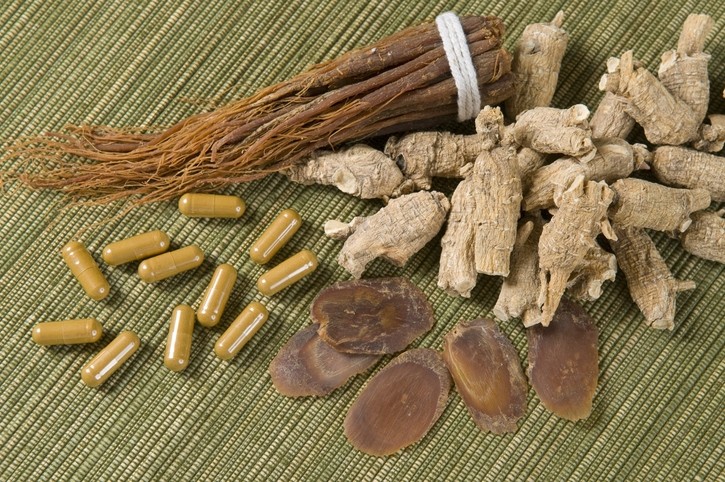Immune function support: Korean red ginseng can help improve immunity – RCT

Researchers in China conducted a randomised controlled trial (RCT) and found that Korean red ginseng (KRG) enhances immunity without adverse side effects.
“Taking KRG has no adverse effects on the health of the subjects. According to the standard of clinical trial scheme, the immune related health scores and IgA in the main efficacy indicators were positive, which shows that KRG is helpful in enhancing human immunity,” wrote the researchers in Journal of Ginseng Research.
The Chinese Pharmacopoeia (2020 edition) records that KRG is warm in nature, sweet in taste and slightly bitter, and has the effects of tonifying vital energy, restoring pulse, strengthening the meridians, and absorbing blood. Research has shown that KRG contains ginsenoside, arginine disaccharide, maltol, trace elements and other components. It is known to have health benefits such as enhancing immunity, antioxidation, and anti-ageing, which are beneficial for strengthening immunity. However, this has not been extensively researched.
Immune responses decline with age, with some starting to feel the effects as early as 35–40 years old. One such effect is hypoimmunity, which refers to symptoms such as feeling tired often, catching colds, and suffering from mental depression.
To gain greater understanding of the effects of KRG on the human body, researchers recruited patients with hypoimmunity from the Second Affiliated Hospital of Tianjin University for a randomised, double-blind, and placebo-controlled clinical trial.
The study
The participants were aged 20–65, with 80% between 40 and 65 years old. They included those with weak constitution and vulnerability to diseases such as having colds at least 3 times a year, having bronchitis or pneumonia at least twice a year, prone to acute diarrhoea at least 3 times a year (except due to lactose, wheat gum and other food intolerances), and having urinary tract infection at least 3 times a year.
The participants were randomly divided into two groups, with 52 valid subjects in the test group and 52 cases in the control group.
Those in the test group took the JungKwanJang red ginseng capsules manufactured by the Korean Society of Ginseng, which contain G1899(P) Korean Ginseng Powder. The drugs specifications were 0.465 g/granule × 90 granules/bottle, with total saponin content of 3.5–4.8 g/100 g.
The control group took the placebo capsules, which were also provided by the Korean Society of Ginseng and were identical to the test product in dosage form, taste, appearance, and packaging. The ingredients of placebo capsule include lactose, microcrystalline cellulose, silica, magnesium stearate, tartrazine, allura red, brilliant blue, and food flavouring essence.
The participants had to take 3 capsules orally twice a day throughout the 180-day trial.
Safety indicators (such as blood pressure and heart rate, blood routine, liver and kidney function, urine routine and stool routine) and efficacy indicators (such as mood, appetite, and physical strength) were recorded at the start of the trial, during the mid-point, and at the end.
The differences of various immune indicators within and between groups before and after the test were also compared.
The results
Within the test group, the study indicates that KRG significantly improved several key indicators of immune function.
Immune-related health scores, which measure overall immune system health, showed significant improvement both midway through the trial and at the end. CD3 (a marker on T-cells that are critical for immune response), and CD4/CD8 ratio (an indicator of immune balance), both increased significantly by the end of the trial. Immunoglobulins (IgG, IgA, IgM) and white blood cells, which help fight infections, showed significant increases midway through and at the end of the trial.
Monocytes, a type of white blood cell involved in immune response, increased significantly midway through and at the end of the trial. Natural killer (NK) cells, which play a role in destroying infected or cancerous cells, increased significantly midway through and at the end of the trial.
TNF-α and IFN-γ, which are inflammation markers, decreased significantly midway through the trial.
Compared to the control group, the test group had higher Immune-Related Health Scores both midway through and at the end of the trial. The test group showed higher IgA levels, both midway through and at the end of the trial. The test group had higher white blood cell counts midway through the trial, and higher levels of monocytes both midway through and at the end of the trial. There were also higher levels of neutrophils (another type of white blood cell that fights infections) midway through the trial.
The results also showed that taking KRG has no adverse effects.
There is no significant difference in fireness score between the two groups – in traditional Chinese medicine, fireness refers to the hot symptoms that are caused by a yin-yang imbalance, which can cause discomfort like red and swollen eyes, yellow urine, or sore throat.
Furthermore, none of the participants reported adverse reactions and allergic reactions such as nausea, flatulence, diarrhoea, and abdominal pain during the test period.
“The blood pressure, heart rate, blood routine, urine routine, stool routine, liver and kidney function of the test group and the control group were all within the normal range before and after the test. Before the test, the subjects' chest X-ray, ECG, and abdominal B-ultrasound were all within the normal range. There was no significant difference in fireness score between the test group and the control group compared before and after the test, as well as between the groups. There was no allergy or adverse reaction during the test, indicating that this product had no adverse effects on the health of the subjects,” said the researchers.
Additionally, this trial was conducted during the COVID-19 pandemic, during which 46 people in the test group and 49 people in the control group were infected. In the test group, COVID-19 symptom severity and scores for dizziness and fatigue were lower compared to the control group. Other COVID-19 symptom scores such as fever, cough, muscle soreness and loss of taste were lower than those in the control group.
This suggests that KRG might reduce the severity of COVID-19 symptoms, but further research is needed to confirm this.
In general, the researchers observed that KRG is helpful in enhancing human immunity.
“This study examined the effect of KRG in enhancing immunity, immune related health scores, IgA and monocytes achieved positive results. Through the results of immune-related health score, it is found that the subjects have improved in comprehensive score, individual perception, psychological feeling and physiological sensation. IgA has an important immune barrier function, which can prevent pathogens from invading the body. KRG and KRG-P (KRG polysaccharide) can up-regulate the IgA level in the intestine of mice. The results of this study further show that KRG up-regulates IgA to help enhance immunity,” concluded the researchers.
Source: Journal of Ginseng Research
DOI: https://doi.org/10.1016/j.jgr.2024.05.007
“Enhanced immunity effect of Korean Red ginseng capsule: A randomized, double-blind and placebo-controlled clinical trial”
Authors: Yi Yang, Jing Li et al.
Healthier Product Innovation will be a major topic at Growth Asia Summit 2024 – join us in Singapore to learn about market opportunities and glean insights from major industry experts. Find out more here.













